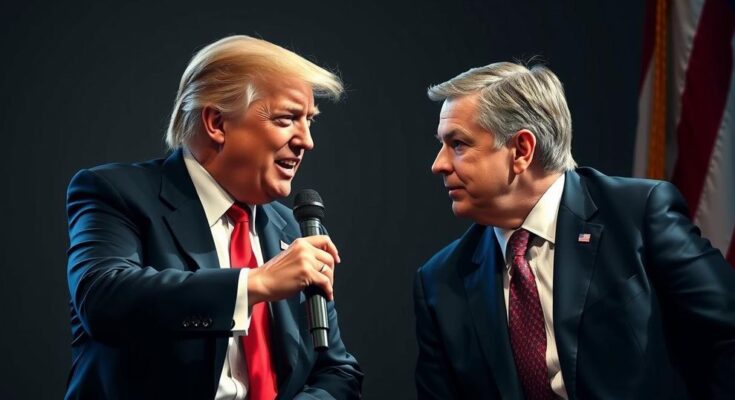The United States must regain its technological leadership, currently dominated by China in critical technologies. The focus should shift towards empowering startups and small businesses to drive innovation, especially under the potential leadership of Donald Trump and JD Vance, who intend to dismantle regulatory barriers that stifle entrepreneurship and creativity. Significant reforms in innovation policy are urgent for economic prosperity and national security.
At the close of the 20th century, the United States held the esteemed position of being the premier technological leader globally. However, as we navigate the 21st century, the U.S. has notably lagged behind, with China now commanding a competitive edge in 37 out of 44 critical technologies crucial for the future. The imperative for the U.S. to reclaim its technological preeminence is critical for ensuring both economic prosperity and national security.
To achieve this, an initiative that promotes American innovation, particularly emphasizing support for startups and small businesses, is required. Donald Trump and JD Vance are poised to spearhead this innovation reform, with Vance’s venture capital expertise providing valuable insight into the challenges faced by startups. Conversely, Vice President Kamala Harris’s potential presidency could perpetuate the current administration’s discouraging stance toward emerging technologies.
The Biden administration’s regulatory approach has stifled innovation, specifically targeting the blockchain and cryptocurrency sectors, as exemplified by aggressive SEC actions against prominent companies. Furthermore, an executive order characterized as overreaching has burdened artificial intelligence developments, with few companies able to thrive amid such stringent regulations.
In the realm of biotechnology, the administration’s agreement to forgo patent protections for the mRNA technologies developed in the fight against COVID-19 indicates a detrimental policy that may incentivize foreign nations, particularly China, to exploit American innovations. Such trends are alarming; in 2022, foreign inventors outstripped American innovators in patent issuance for the first time, highlighting a significant decline in the U.S.’s innovation landscape.
Efforts must be implemented to reverse these adverse developments promptly. A reinvigorated emphasis on supporting small businesses—historically the bedrock of American innovation—could pave the way for renewed growth. Notable innovations from figures like Thomas Edison and the Wright Brothers demonstrate that true, disruptive advancements often originate from smaller entities. Indeed, firms with fewer than ten employees generate an impressive number of patents relative to larger corporations.
Recognizing this, President Trump has aligned the 2024 Republican platform with the needs of small businesses, explicitly vowing to foster innovation by dismantling the regulatory hurdles that hinder growth and creativity. Vance’s hands-on approach to entrepreneurship in less represented states exemplifies a commitment to addressing regional disparities in innovation.
Through the reassertion of the Small Business Administration’s focus on innovative startups across the country, and the establishment of supportive federal frameworks, an environment conducive to entrepreneurial success can be created. Notably, under Trump’s previous administration, measures were taken to enhance the dialogue surrounding innovation and better support the transition of technologies from academia to industry.
American innovation has deep historical roots, as illustrated by early demonstrations of ingenuity during formative moments, such as John Fitch’s steam engine presentation in the 18th century. For the U.S. to ascend once again as a leader in global technology and manufacturing, it is imperative to enact policy reforms that bolster the entrepreneurial spirit and facilitate the growth of small businesses. The time has come to reclaim America’s competitive edge.
At the end of the 20th century, the U.S. was the undisputed leader in technology worldwide. However, as of the 21st century, it faces intense competition from China, which has emerged as the leader in various critical technologies. This loss of status has prompted calls for new innovation policies aimed at revitalizing American startups and small businesses. The current administration’s regulatory stance on emerging technologies like blockchain and AI has raised concerns about the country’s ability to compete globally. With upcoming elections, various leaders are positioning themselves to address these innovation challenges and reinvigorate the U.S. economy.
In summary, revitalizing America’s innovation landscape and supporting startups is essential to regain competitive advantages in technology and manufacturing. With increased emphasis on small businesses, streamlined regulations, and support from leaders such as Trump and Vance, the U.S. can foster a thriving entrepreneurial ecosystem. Such efforts are not just vital for economic prosperity but are fundamental to preserving national security and strengthening the American spirit of innovation.
Original Source: fortune.com




